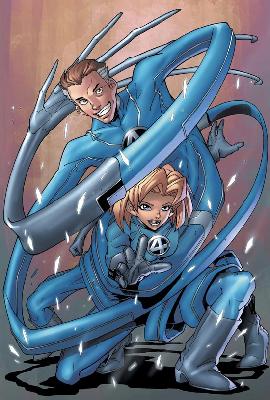“I just wish I could let go of this place.”
(Demo is a pretty good comic book by Brian Wood and Becky Cloonan. After the discussion about issue #6 at David Allen Jones’s blog, I figured it was time to do a closer rereading. Since the pages in Demo #6 aren’t numbered, I’m counting starting at the first page after the inside cover.)
Ken thinks his problem as a kid was small-town American xenophobia. Reminiscing on the day he sent an army of zombie pets after his entire neighborhood, he asks, “Did they deserve it?” (p. 23). Ah, Ken, wrong question… It’s obfuscated by the racism angle, but what poor little Ken seems to suffer is the same suburban ennui and fear of conformity that Lester Burnham felt in American Beauty, a dis-ease which is utterly terrifying to Ken (and Lester) and utterly banal to every other suburbanite who felt it and decided to do something other than whine or act pretentiously nutty. Ken’s real problem is his inability to take action to end his bad life. He thinks his problems are anybody’s fault but his. “Then there was my mom. I know she tried. But she was just as miserable and angry and out of place as I was” (p. 8). “But I know Dad tried too. It just wasn’t enough, I guess” (pp. 9-10). Even Ken’s happiness becomes the responsibility of others: “The only person that looked like me weeded the neighbor’s lawn. I never knew his name or even spoke to him, but he always made me feel better somehow” (pp. 6-7). (Ken’s claim that he never spoke to the gardener turns out to be incorrect [pp. 20-21], which is only the most obvious signal that he’s far from a reliable narrator.)
The ability to raise and control zombie pets is, of course, a great power for a guy like Ken who likes to displace responsibility. Ken wants revenge? Hey, he doesn’t have to get his hands dirty, let the dogs do it. He always had his dog to make him “feel better” (p. 14), but when one of those mean neighbors kills it, the dog becomes an instrument of vengeance. “…as much as my dog once helped me control my anger, he now helped me focus it” (p. 15). Ken is so passive himself, he’s passing the buck for his emotions on to his pet dog. The art focuses on horrific images of ghostly skeletal figures, zombies clawing out of the ground, violent death, but this is more displacement. The real horror is Ken’s passivity and retreat from the world.
But then, while Ken may be displacing his revenge onto the zombie pets, it’s still the most proactive measure he’s ever taken. The massive zombie devestation could be a terrible moment of insight that jolts Ken out of his loser world, but even as the power surges through him he can’t give up his lack of control. His one conversation with the gardener is brief: the gardener admonishes, “You should stop now. Hate will eat you too,” and Ken replies, “OK” (pp. 20-21).
Ken foolishly takes the gardener’s advice as the moral of the story:
I remember that day well enough. The one day I lost control, the one day I got mad. The one day I let those feelings out (p. 23). It’s staring me right in the face [over an image of Ken’s resurrected dog, looking up at Ken]. That gardner [sic] was right, hate will eat you up, if you let it. I stopped in time, and yeah, life is good now. But I will never forget how close I came (p. 25).
Well, is that a cop out or what? Here Ken has just lied to his wife about why his childhood neighborhood is an abandoned wreck. Because the text jumps from the frame story with Ken as an adult to the flashback with Ken as a child, and because it conspicuously refuses to fill in any information about the intervening years, and because Ken is hardly a reliable narrator, there’s not much reason to believe him when he claims “life is good now,” that he narrowly escaped tumbling into the abyss and is now happy and healthy. The narration is flat and simplistic (”I got sad. Mom cried. Dad got super mad. Then I got scared and embarrassed” [p. 11])—has Ken reverted to childlike narration for the flashback, or does he still actually think like that, as an adult? Why doesn’t he grow up and deal with his real problems? Oh, but then he’d have to tell his wife about them… And why does he decide not to do that? To protect her from his dark past? or just to avoid confronting them himself? No, there’s nothing good about Ken’s life now, and his wife is just another responsibility-displacement tool.
(David Fiore has a somewhat similar reading, over at his own blog:
…when you make a person you love cry, it’s not “society’s” fault, it’s yours. I would assume that goes at least double for mass-murder! And man, if you aren’t willing to look your past victims in the eye—just don’t bother looking at all, because the objects back there are much farther away than they seem, unless you have the benefit of another person’s perspective to help you find the range.
He also compares the story to the film The Strange Love of Martha Ivers.)
